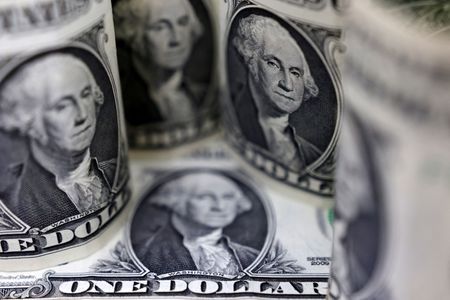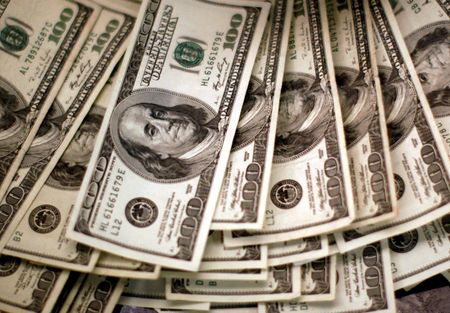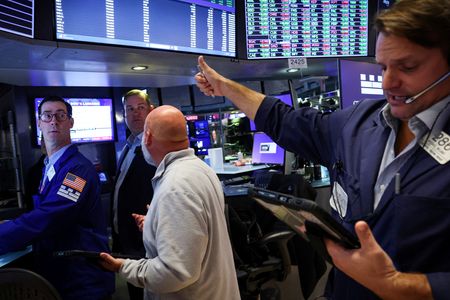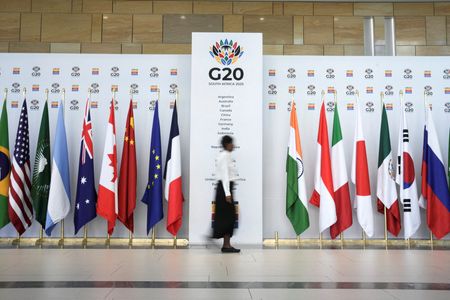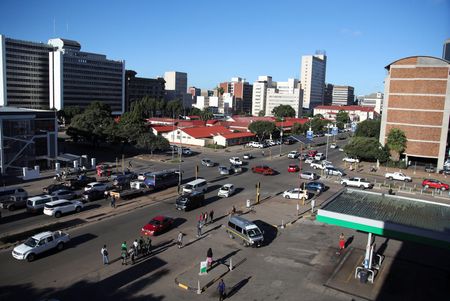By Brigid Riley
TOKYO (Reuters) -Major currencies remained jittery on Friday as markets awaited U.S. job data and considered the impact of a politically turbulent week that saw the collapse of France’s government and the brief imposition of martial law in South Korea.
The U.S. dollar briefly spiked against South Korea’s won after local media reported that the nation’s main opposition Democratic Party said lawmakers were on standby after receiving reports of another martial law declaration.
The won was last down 0.42% at 1419.27.
South Korea’s President Yoon Suk Yeol shocked the nation and his own ruling People Power Party on Tuesday when he imposed martial law and then rescinded it hours later, spreading turmoil in global financial markets.
The political upheaval has kept Korean markets on edge even as authorities pledged to provide ‘unlimited liquidity’ to stabilise conditions.
Facing political turmoil on its own turf, the euro slid 0.14% to $1.0573 after rebounding on Thursday as French bonds stabilised.
French President Emmanuel Macron met allies and parliament leaders on Thursday as he sought to swiftly appoint a new prime minister to replace Michel Barnier, who officially resigned a day after opposition lawmakers voted to oust his government.
For now, the European Central Bank isn’t expected to react to heightened political turmoil in Europe when it meets next week, with traders and economists fairly certain it will trim rates by 25 basis points on Dec. 12.
The euro was on track to post a weekly loss, which would mark its fourth in the last five weeks.
U.S. JOBS REPORT IN FOCUS
On the broader economic front, the spotlight will be on the U.S. non-farm payrolls report for November due later in the day as investors look to second guess the pace of future Federal Reserve rate cuts.
Payrolls are expected to have increased by 200,000 jobs last month, according to a Reuters survey, after rising by only 12,000 in October, the lowest number since December 2020. The unemployment rate was forecast climbing to 4.2%.
Markets currently see about a 72% chance that the Federal Reserve will deliver a 25-basis-point rate cut when it meets on Dec. 17-18, up from 66.5% a week ago, CME FedWatch tool showed.
“The Fed will be wary of placing too much weight on the expected steep rebound in payrolls in November,” said Sean Callow, senior FX analyst at InTouch Capital Markets.
“So long as the unemployment rate doesn’t fall back to 4.0%, markets should be comfortable about leaning towards a rate cut this month, which should keep a lid on dollar rallies.”
The dollar index, which measures the greenback against six rivals, rose 0.10% to 105.82 after slipping towards a three-week low in the previous session.
China’s yuan was little changed against the dollar, but is headed for its tenth straight weekly loss amid concerns that new tariffs threatened by President-elect Donald Trump will heighten strains on the struggling Chinese economy, and whether Beijing will ease its grip on the currency to support exports.
The onshore yuan was mostly unchanged at 7.2578. The offshore yuan also traded about flat at 7.2632 per dollar.
In cryptocurrencies, bitcoin took a breather after catapulting above $100,000 for the first time a day earlier.
It briefly slid to a one-week low and was last down 1.15% at $97,870, well off its all-time-high of $103,649 hit the previous day.
Trump on Thursday said he was appointing former PayPal Chief Operating Officer David Sacks as his artificial intelligence and cryptocurrency czar.
The dollar was down 0.11% against the yen at 149.90 as traders pondered the likelihood of a December rate hike in Japan. Government data showed Japanese household spending dropped 1.3% in October from a year earlier, coming in better than expected.
Elsewhere, sterling traded at $1.2748, down 0.09% on the day.
The Australian dollar fetched $0.64285, down 0.37%, and the kiwi slid 0.43% to traded at $0.58595.
(Reporting by Brigid RileyEditing by Shri Navaratnam and Kim Coghill)

